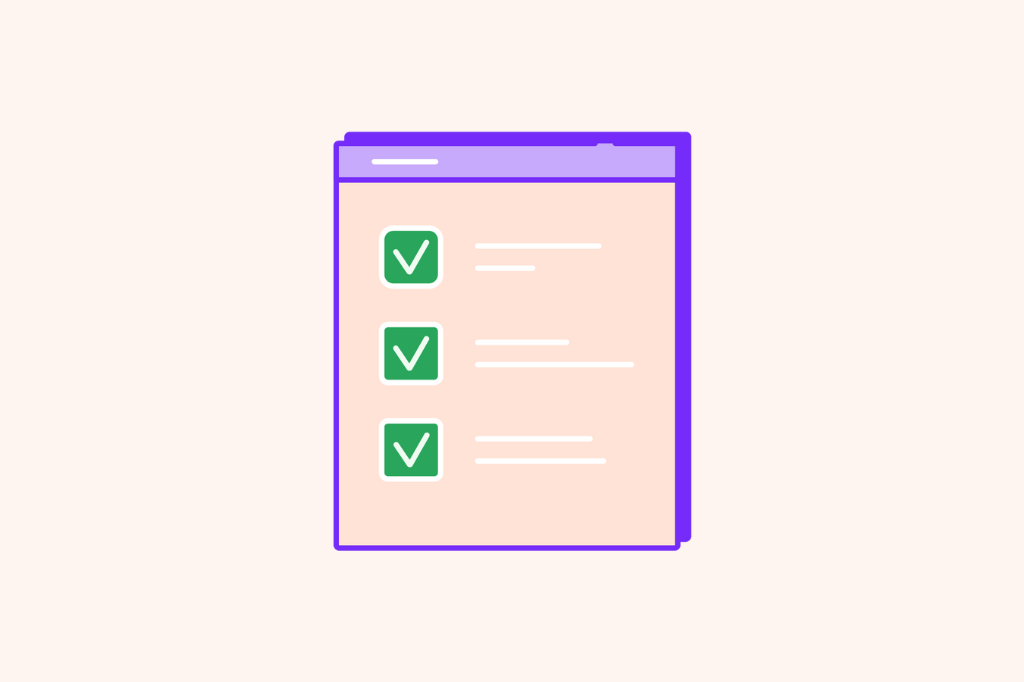How to build a scholarship application form with reviewer access
Create a scholarship application form that collects student details, scores submissions, and gives reviewers secure access for evaluations.
.jpg)
Manage scholarship applications from submission to selection
In this guide, you’ll build a scholarship application form that accepts student applications, allows reviewers to evaluate submissions, and automates scoring and shortlisting. Perfect for schools, foundations, and nonprofits managing grant or scholarship programs.
📘 Learn more: Create your first form, app, or portal in a flash
Step 1 — Create your scholarship application form
Start from your workspace and click + New → Form. You can start from scratch or choose the College admission form template from the Template gallery.
Or use Magic Create, describe what you need:
“A scholarship application form that collects student details and allows reviewers to evaluate and score applications securely.”
Why this matters: having a single, structured form simplifies your entire review and selection process.
📘 Learn more: How to create any form using Magic Create in Formaloo
Step 2 — Add student and eligibility fields
Start with personal and academic details to identify applicants clearly:
- Full name
- Email address
- Date of birth
- Phone number
- School or university
- GPA or academic score
- Program or field of study
- Country or region
📘 Learn more: Form editor and field types
Step 3 — Collect supporting documents
Allow applicants to upload documents such as:
- Resume or CV
- Transcript or grade report
- Recommendation letter
- Personal statement or essay
📘 Learn more: How to customize the content field
Step 4 — Add eligibility and essay questions
Include structured fields that help reviewers assess fit:
- Why do you deserve this scholarship?
- What are your career goals?
- Describe your community involvement.
- Have you previously received this scholarship? (Yes/No)
📘 Learn more: How to customize text field and long text field
Step 5 — Add reviewer-only evaluation fields
Create hidden fields that reviewers will later fill in, such as:
- Reviewer name
- Academic score (1–5)
- Motivation score (1–5)
- Financial need score (1–5)
- Average score (calculated automatically)
- Reviewer comments
- Application status (Pending / Shortlisted / Rejected / Awarded)
📘 Learn more: How to edit forms and form responses
Step 6 — Add scoring logic for reviewer evaluation
Use field ID to automatically calculate the total or average score.
Example:
academic = @academic_score
motivation = @motivation_score
need = @financial_need_score
average_score = (@academic + @motivation + @need) / 3
Display results for reviewers or use them for filtering top applicants.
📘 Learn more: How to add and calculate scores using variable fields
Step 7 — Automate notifications for submissions and reviews
In Settings → Advanced logic or Notify tab, create emails for:
- To applicant: confirmation of submission with unique ID.
- To admin or reviewers: notification of new applications.
- To shortlisted candidates: message after evaluation.
Use variables like @name, @average_score, and @application_status to personalize messages.
📘 Learn more: How to create and send custom email templates
Step 8 — Build your reviewer portal
From your workspace, create a Scholarship Review Portal for reviewers.
Add pages such as:
- All applications
- Pending reviews
- Shortlisted candidates
- Final decisions
Set access rules so:
- Applicants see only their own submissions.
- Reviewers see assigned applications and can edit reviewer fields.
- Admins see and manage everything.
📘 Learn more: How to create a portal and manage users’ access
Step 9 — Use on-update logic for review workflows
Use on-update logic to trigger actions when reviewers score or change statuses:
- When Status = Shortlisted → Notify admin and mark as reviewed.
- When Status = Awarded → Send congratulatory email and generate PDF letter.
- When Score < 3 → Auto-tag as “Not eligible.”
📘 Learn more: What is on-update logic and how it works
Step 10 — Create dashboards for transparency
Go to Results → Responses to build a live overview:
- Table view: sort applicants by score or status.
- Charts: visualize average scores or number of shortlisted candidates.
- Kanban view: group applications by review stage (Pending, Reviewed, Shortlisted, Awarded).
📘 Learn more: How to create a Kanban board
Step 11 — Generate scholarship letters or reports
Create a custom PDF template to generate letters automatically:
- Award letters for successful candidates
- Summary reports for reviewers
Attach these to automated emails upon status change.
📘 Learn more: How to generate custom PDFs using templates
Step 12 — Analyze applications with AI
Enable AI Analyze to uncover trends and insights, such as:
- “Average applicant GPA by region.”
- “Top-rated essays by reviewers.”
- “Most common eligibility issues.”
📘 Learn more: Uncover insights and trends in your data with AI Analyze
Pro tips
- Use linked rows to connect this form with a Scholarship Renewal Form or Applicant Directory.
- Add approval logic for multi-level review workflows.
- Enable Memory Forms so returning applicants’ details auto-fill.
📘 Learn more: What are linked rows and how to use them
Example scenario
Students apply for the STEM Excellence Scholarship. Reviewers access the portal, score each applicant, and mark top candidates as Shortlisted. The system calculates average scores, emails notifications to finalists, and generates award letters automatically. The admin dashboard updates with total applications and reviewer performance insights.
📘 Learn more: Build personalized and time-saving flows with logic, automations, and AI
FAQ
- Can reviewers access only their assigned applications?
Yes, use user roles and page filters in the portal for controlled visibility. - Can applicants edit their submissions after applying?
Absolutely, enable “Edit submission” or create a logged-in applicant portal.
📘 Learn more: How to let users view and edit their own data in your portal - Can I anonymize submissions for unbiased reviews?
Yes, hide identifying fields (like name or email) from reviewer pages while keeping them in admin view.
Your scholarship workflow is live, from applicants to awardees
You’ve built a complete scholarship management system with submission, scoring, and review tracking all in one. Keep refining it with AI insights, dashboards, and automated letters for a fair, efficient, and delightful review process.
📘 Learn more: How to personalize ending pages and email notifications with AI
Last updated November 2025


.png)















